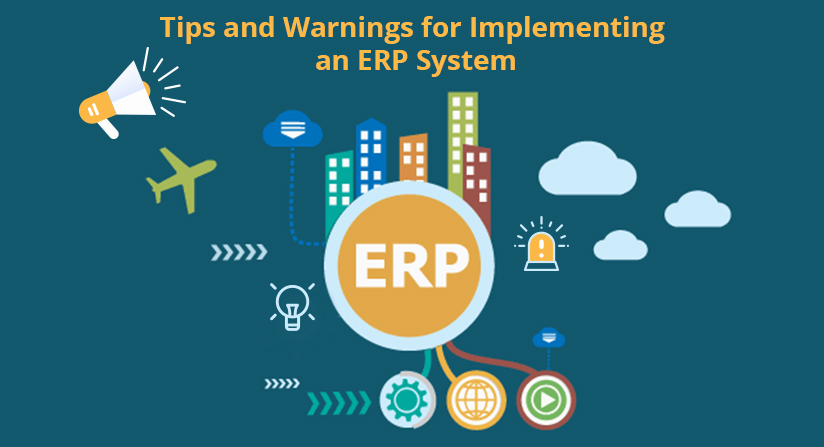Achieving extraordinary business transformation through the implementation of an ERP solution isn’t a matter of luck. It requires careful planning and a commitment to the best practices of quality. To establish predictability and transparency in your project, whether you are intending to implement an on-premise or a cloud solution, you need insight into the ERP implementation cost.
If you are a manufacturer or a CXO of a manufacturing business, an enterprise resource planning software solution will support you in every operational aspect. ERP ensures that every departments’ data is centralized in one place so that employees can easily access it.
But, before giving a thought about selecting a suitable ERP software, every business owner ponders upon the actual cost of the ERP implementation process. It is a subjective matter and depends on the comprehensive requirements and different variables of your business.
When implementing ERP solutions to drive business transformation, an organization must understand what it takes to complete the project successfully, whether the project is large or small, whether implemented on-premise or in the cloud. The steering committees, project team members, and stakeholders should be aware of the critical elements ERP implementation cost breakdown.
The cost of implementing ERP system relies on a variety of elements:
1. ERP licensing
Licensing costs depend on what you choose. Do you want to buy a software license outright or is it okay to pay the monthly subscription for the ERP license?
An ERP system is licensed for use. You don’t own it, you get it licensed. It may be for either the entire organization or a unit or number of people using it. Depending on the budget and requirements, the ERP license may be temporary or perpetual. And, the maintenance agreement of the system is priced as a percentage of the license.
2. Number of users and the size of the company
The cost of implementing an Enterprise Resource Planning software system greatly depends on the number of people who will be using it. A smaller amount of users means less licensing cost. The amount of training needed and the complexity of business processes also affects the license cost. In most cases, the minimum number of ERP users is five.
3. Type of industry
ERP software cost is determined based on the complexity and nature of the business. A discrete manufacturing business will require quite a bit of functionality to include supply chain planning, production management, quality control, etc. An accounting firm will be concerned with budgets, finance, and more. The needs of every industry are different, so you should take time to select the ERP that can best meet your specific business requirements and then choose the path towards implementation.
4. Additional customizations, if any
Every business is unique and so is its nature. Implementation of ERP requires a great deal of organizational change to fit into the company’s silhouette. If the ERP system does not properly mirror all of your business processes, you’ll need to add some customized functionality.
According to a report, only 23% of companies implement ERP with just a little or no customization done.
5. Infrastructure cost
The deployment option you choose determines the infrastructure cost. If you chose an on-premise implementation, it will include server costs, backup, storage, and the cost of IT systems. If you select cloud ERP implementation, the overall cost is lower as everything is stored on the cloud, fewer IT employees are required, and physical server costs will be eliminated.
Recurrent costs also add more to the overall ERP cost. Recurrent costs vary from vendor to vendor. Some ERP vendors lower the initial cost but increase the renewal cost. On average, the renewal cost of ERP is 10% to 15% of the total software cost. Also, an additional fee may be charged for upgrades or other IT costs.
Bottom line
Enterprise Resource Planning has become an integral part of an organization, whether big or small. If you are someone who is willing to invest in ERP for the first time or may be looking for new software for your business, consider OptiProERP with SAP Business.
With a team of well-versed and experienced SAP developers, we have come up with a state-of-the-art manufacturing ERP that will drastically improve the way your business works. To learn more, please visit us at https://www.optiproerp.com/
Follow Us




